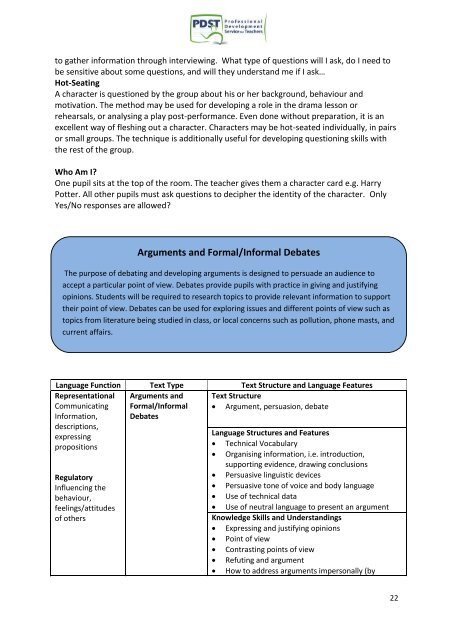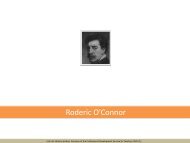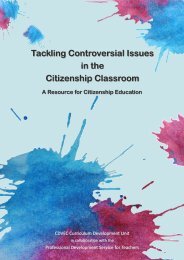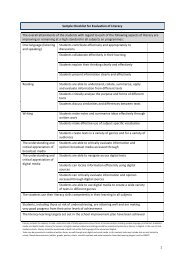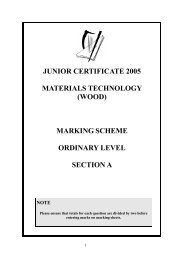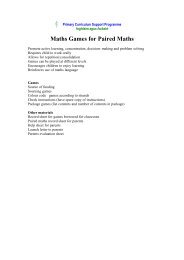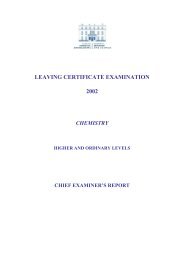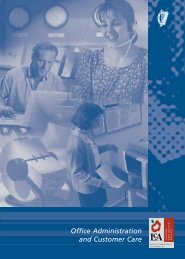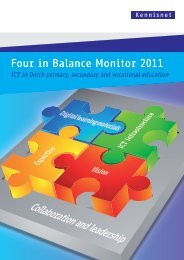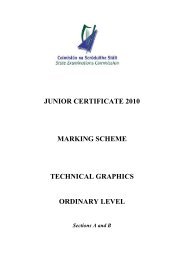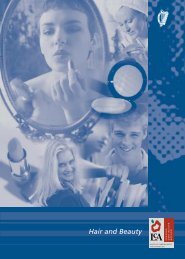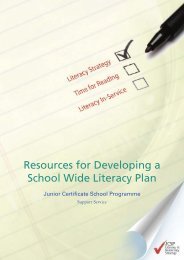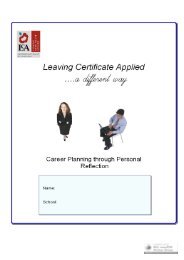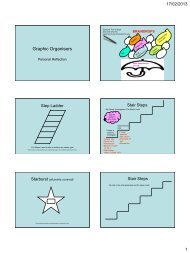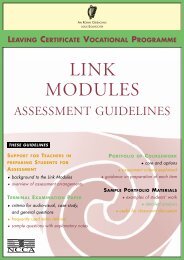Five Components of Effective Oral Language Instruction - PDST
Five Components of Effective Oral Language Instruction - PDST
Five Components of Effective Oral Language Instruction - PDST
Create successful ePaper yourself
Turn your PDF publications into a flip-book with our unique Google optimized e-Paper software.
to gather information through interviewing. What type <strong>of</strong> questions will I ask, do I need to<br />
be sensitive about some questions, and will they understand me if I ask…<br />
Hot-Seating<br />
A character is questioned by the group about his or her background, behaviour and<br />
motivation. The method may be used for developing a role in the drama lesson or<br />
rehearsals, or analysing a play post-performance. Even done without preparation, it is an<br />
excellent way <strong>of</strong> fleshing out a character. Characters may be hot-seated individually, in pairs<br />
or small groups. The technique is additionally useful for developing questioning skills with<br />
the rest <strong>of</strong> the group.<br />
Who Am I?<br />
One pupil sits at the top <strong>of</strong> the room. The teacher gives them a character card e.g. Harry<br />
Potter. All other pupils must ask questions to decipher the identity <strong>of</strong> the character. Only<br />
Yes/No responses are allowed?<br />
<strong>Language</strong> Function Text Type Text Structure and <strong>Language</strong> Features<br />
Representational<br />
Communicating<br />
Information,<br />
descriptions,<br />
expressing<br />
propositions<br />
Regulatory<br />
Influencing the<br />
behaviour,<br />
feelings/attitudes<br />
<strong>of</strong> others<br />
Arguments and Formal/Informal Debates<br />
The purpose <strong>of</strong> debating and developing arguments is designed to persuade an audience to<br />
accept a particular point <strong>of</strong> view. Debates provide pupils with practice in giving and justifying<br />
opinions. Students will be required to research topics to provide relevant information to support<br />
their point <strong>of</strong> view. Debates can be used for exploring issues and different points <strong>of</strong> view such as<br />
topics from literature being studied in class, or local concerns such as pollution, phone masts, and<br />
current affairs.<br />
Arguments and<br />
Formal/Informal<br />
Debates<br />
Text Structure<br />
� Argument, persuasion, debate<br />
<strong>Language</strong> Structures and Features<br />
� Technical Vocabulary<br />
� Organising information, i.e. introduction,<br />
supporting evidence, drawing conclusions<br />
� Persuasive linguistic devices<br />
� Persuasive tone <strong>of</strong> voice and body language<br />
� Use <strong>of</strong> technical data<br />
� Use <strong>of</strong> neutral language to present an argument<br />
Knowledge Skills and Understandings<br />
� Expressing and justifying opinions<br />
� Point <strong>of</strong> view<br />
� Contrasting points <strong>of</strong> view<br />
� Refuting and argument<br />
� How to address arguments impersonally (by<br />
22


